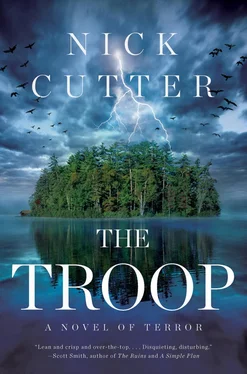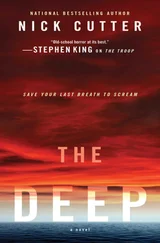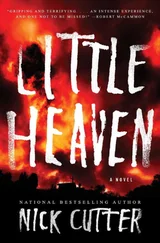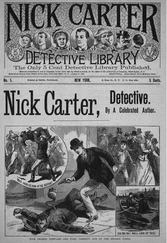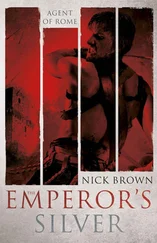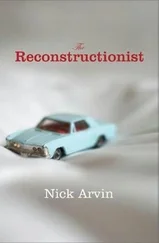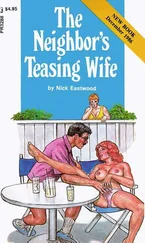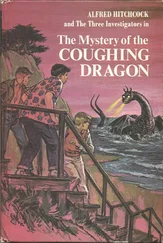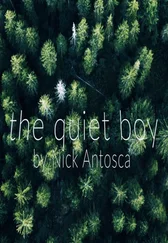He could feel it inside of him: a vast darkness, itchy-black, unfurling like the petals of a night-blooming flower. It would hurt. Oh yes. But then change always did.
The hateful boys had wounded him. They may have hurt his babies—but no, he could feel them squirming contentedly inside of him. Thank goodness.
The boys needed to die.
Shelley had been planning on killing them, anyway. He wasn’t sure it’d be much fun at this point, although it might provide the same fleeting thrill he’d experienced while drowning Kent: a fizzy, sudsy bath-bubble feeling in his veins. But now he’d kill them as a simple matter of principle. They had harmed him, which meant—inadvertently or otherwise—they had harmed his babies. And a father always defended his children.
Shelley exited the cave. The night enveloped him. He was part of it, dark just like it.
EAT EAT EAT
Oh my, weren’t they so needy? So hungry. They asked so much of him, as all children must… but Shelley was only too happy to give.
He came upon a diseased elm. Its trunk was pocked with tiny bore holes. He tore away a chunk of bark—his strength was immense!—and clawed inside the rotted tree. When he withdrew it, his hand was teeming with woodlice. He crunched them into paste. They fidgeted on his tongue and tickled his throat when he swallowed. He giggled hoarsely while sucking the last few lice off his fingers.
GOOD GOOD EAT MORE MORE MORE
Shelley caught his reflection in a pool of moonlight-sheened water. He was horribly wrinkled. It looked as if spiders with legs of thin steel wire had battened onto his flesh, curling and tightening, trenching deep lines into his face.
His stomach was a swollen gourd. It bulged through his shirt and over the band of his trousers. Its pale circumference was strung with blue veins and sloshed with a dangerous, exciting weight…
…in the dank wastes of his brain—his undermind, you could say—a species of mute fear twined into his thoughts. This isn’t right , a voice said. You’re being eaten alive .
…a wave of acidic warmth washed through those thoughts, burning them away.
Oh, they asked so much of him! It was tiring, feeding all those hungry mouths. And the mouths just beget more mouths and more mouths and more and more and—
Shelley slid down the incline to the campsite. Firelight crept around the cabin’s shattered angles. He snuck around the far side and surveyed the fire pit. Max was sleeping. He imagined grabbing his hair and jamming him face-first into the white-hot coals. He pictured the silly boy’s face melting like a latex Halloween mask.
The fat one, Newton, was staring right at him.
His heart jogged in his chest: ba- dump . Newton sat on the far side of the fire. The flames played over his eyes, which seemed to be staring directly at him.
EAT EAT EAT EAT
In a moment , he thought. First I have to kill them. Then I’ll be alone. Then I can give birth in peace. Then we can all play .
But how would he do it? He’d lost his knife. Was Newton really looking at him?
“I see you, Shelley.”
Newton pulled a knife out of his pocket. His knife. He unfolded it carefully and stabbed the tip into a log. The knife quivered in the wood. An invitation?
“Go away. Get out of here. Now,” Newton whispered.
A cold, slippery eel ghosted through the ventricles of Shelley’s heart, cinching itself tight. He retreated like a groveling animal. He wanted them dead so badly but… but… but he was so hungry .
Shelley’s stomach swayed as he tripped sideways, whimpering softly as his belly brushed the edge of the cabin—for a moment he felt it might detach and burst like a water balloon on the forest floor. Then he’d lose everything. His children. His precious babies.
SHELLEY WASin the forest again. Night folded over him. The hunger was hellish, unspeakable, but one must suffer for what one loves.
He shambled through the woods, eating whatever. It came to him in flashes. In one moment, he was hunched under a log devouring eggs, maybe—termite eggs whose sacs burst between his teeth like albino jelly beans…
…next he was along the shoreline ankle-deep in the freezing surf, gorging himself on the decayed carapace of some creature that had once crawled in the sea. So tasty. It slipped between his numbed fingers and he collapsed into the surf, squealing like a piglet, clutching at his stinking prize…
…later, much later, Shelley lay in the darkness with the cool trickle of the rock. He was screaming or maybe crying, he couldn’t tell. There was a watery echo down there that did funny things to his voice.
None of that really mattered anymore, anyway. His home, his foolish parents, his teachers, the many jars buried in the backyard full of his playthings, all in various states of decomposition. That was his old life; his silly, forgettable life.
He was going to be a great daddy.
The best .
________
From the sworn testimony of Stonewall Brewer, given before the Federal Investigatory Board in connection with the events occurring on Falstaff Island, Prince Edward Island:
Q: Please state your name and rank, sir.
A: Stonewall Brewer, admiral, Canadian navy.
Q: Stonewall?
A: I always tell people that my mother must have had a premonition.
Q: Very prescient of her. Admiral, when were you made aware of the events occurring on Falstaff Island?
A: About oh-three-hundred. Can’t recall the exact time on the display of the clock beside my bed—although the call was tracked, so we could get you that info if need be.
Q: What were you told?
A: That a nonspecific contagion of unknown lethality had breached containment.
Q: Were you aware of the nature of this contagion?
A: At the time, no.
Q: No idea at all?
A: You will find you’ll only have to ask me a question once, my friend. The first answer is the answer you’ll get every time.
Q: Only seeking to clarify matters for the court, Admiral. What’s your experience, if any, with the spread or neutralization of a contagion?
A: If I had no experience, I don’t imagine it would’ve been my phone ringing in the dead of night. I spearheaded the containment efforts on the SARS outbreak that hit metropolitan Toronto back in 2002.
Q: If I recall, forty-four people died during that outbreak.
A: Could have been a lot more. That was my first rodeo.
Q: And all you knew about the contagion in North Point was—
A: I hit the ground with the intel available at the time. We had one case of infection—
Q: That would be Tom Padgett.
A: That’s right, the guinea pig. Typhoid Tom. It was SOP: quarantine the area, detain all residents, set up a zone of infection. Nothing comes in and most importantly, nothing gets out. That’s how we treat icebergs.
Q: Icebergs?
A: That’s how threats like this are known internally. The idea is that only ten percent of an iceberg is visible. The other ninety percent is below the water. So when we’ve got a threat without set parameters, one that could be huge, we call it an iceberg.
Q: And containment was vital?
A: Always is, but even more so in this case. Word came down that we could be up against a three-tier bug: the virus could be carrier-borne, waterborne, or airborne. The terrible threesome.
Q: What were your orders?
A: I don’t take orders as a rule. It’s my duty to dole them out.
Читать дальше
